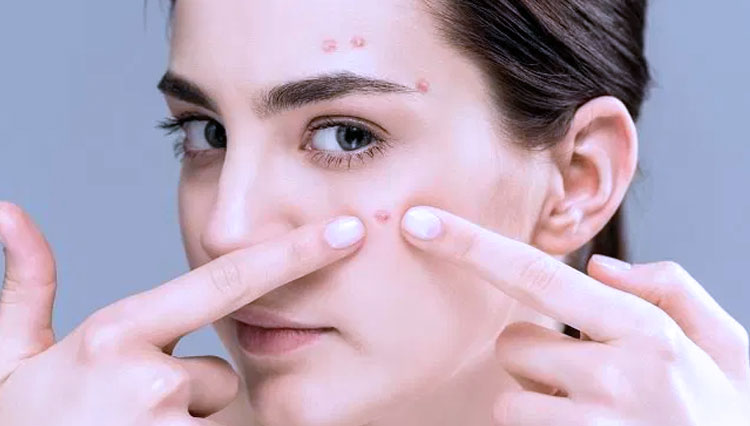Acne vulgaris (AV) is a chronic inflammatory disorder of the pilosebaceous unit, presenting a pleomorphic array of lesions consisting of comedones, papule, pustule, and nodule, with varying severity. AV is one of the most common cutaneous diseases in teens and young adults, defined as the third most crucial disease by the global burden of disease. AV represents the top three most prevalent skin disorders in teens and young adults which burdens individuals. AV negatively impacts the patient’s self-confidence, particularly in teens which have labile personalities. Low self-confidence affects the AV patient’s life quality.
AV is affecting 9.40% of the world population, with the highest prevalence in teenage. The incidence of AV in males and females is over 90% and over 80% in all ethnic groups. AV may occur at any age, from birth (neonatal acne), between 1-12 months (infantile acne), and from teenager into adulthood. AV may persist from a teenager into adulthood, it can have its onset after the teenage period. The prevalence of AV in teenage is higher in males, but the prevalence of AV is higher in females in adulthood. The prevalence rate of AV is 64% in the 20s; 43% in the 30s; 1-7% in the 50s.
This research aims to analyze the impact of AV on the quality of life in teenage patients based on their age, education level, and AV severity. The inclusion criteria were 10-18 years old AV patients. Research instruments were Lehmann’s Grading System for evaluating the AV level severity and the Dermatology Life Quality Index (DLQI) for assessing the quality of life in teenage AV patients. In this study, 46 (42.20%) males and 63 (57.8%) females were collected. DLQI results showed that AV impacts the quality of life by 12.8%.
AV may cause low self-esteem, e.g. insecure feelings of physical appearance, social inadequacy, and low self-esteem in meeting people for the first time. Social acceptance is a highly relevant factor in the teenage group, which may precipitate anxiety and depression. AV is a skin disorder that compromises the aesthetic factor of the face as the most exposed body area. AV will affect the self-esteem of the patients, especially teenagers with labile personalities. However, several factors such as family support and community support may improve the self-esteem level.
Statistical analysis shows the correlation between the quality of life and education level. Stress responds to any situation or factor that creates negative emotional or physical changes. AV may become a source of stress and anxiety, but it is also one of the most important triggering factors in AV. Stress increases glucocorticoids and androgens, resulting in a severer condition of AV.
AV commonly happens among teenagers. The management of acne in adolescent patients should consist of individualized treatment and education about acne and its impact on quality of life. As adolescence has a low maturity to deal with psychological effects, acne has a great potential to trigger anxiety and affect the life quality, regardless of the severity of the disease. A comprehensive school-based acne education program should be initiated to improve the students’ awareness of acne and its impact on life quality.
View more:
The Impact of Acne Vulgaris on Quality of Life in Teen-age Patients
Damayanti1*, Menul Ayu Umborowati1, Zsa Zsa Olivia2, Nining Febriana3
1Department of Dermatology and Venereology, Faculty of Medicine, Universitas Airlangga, Surabaya Indonesia
2Faculty of Medicine, Universitas Airlangga, Surabaya Indonesia
3Departmeny of Psychiatry, Faculty of Medicine, Universitas Airlangga, Surabaya Indonesia
Periodic Epidemiology Journal 2022; Volume 10, No 2. P. 189–198.
ISSN: 2301-7171; e-ISSN: 2541-092X









